Meet Our Team: Robbie Roemer
1. What’s your role in the lab?
I am a Masters of Science (MS) student here at the University of Miami and am focusing on a research project for my thesis. My thesis research is primarily focusing on localized movements of urbanized shark populations, or in other words, sharks that spend long amounts of time in highly urbanized environments. We always view sharks as those which are sensitive to human impacts (pollution, habitat modification, etc.) however it would be very interesting to see show that certain species have learned to thrive in such ecosystems, much like a pigeon in a city. I am also responsible for prepping all the gear that is needed before every shark expedition we take, which also provides a good time to unwind and put on any good music while doing so. Right now its 311, the Red Hot Chili Peppers and Silversun Pickups.
2. Tell us a little about yourself.
I am originally from Baldwin, Maryland, which is somewhat close to Towson if you’ve managed to hear about it. If not, lets just settle on Baltimore! I was raised on the banks of the Gunpowder River, and as such, developed a real affinity for fly fishing which my parents and grandfather fostered. In addition to fly fishing I loved anything that allowed me to be outside, and get exercise. I enjoyed boating, surfing, sailing and canoeing growing up. If I’m not conducting shark research you will find me fly fishing around the greater Miami area (a perfect location for such a sport) or doing a number of outside activities like kayaking or paddle boarding.
3. How did you get interested in marine biology and conservation?
Being raised in such a dynamic area as northern Maryland, I was lucky to be within a close reach of the Chesapeake Bay, many freshwater streams, and the ocean was only a few hours drive. With such a variety of aquatic environments nearby, and my affinity for fishing, my interest for the marine sciences grew. My parents always noticed my interest in aquatic sciences and I was fortunate to get involved by volunteering at an estuary center at an extremely early age. This later developed into a passion for fisheries, a great segue for my undergraduate degree in Marine Science where my interest of elasmobranch ecology began. I owe my parents a large amount of gratitude for their encouragement. They always helped foster my passion, and without them I wouldn’t be where I am today.
4. What’s your favorite part about working in the lab?
We have some of the most unique students all working collaboratively and efficiently. Everybody gets along great, and honestly a lot of us are more like a family than lab mates. We encourage and push each other to be the best we can be, and after all is said and done we can all go out, grab food, and laugh until we cry.
5. Is there anything you’d like to say to our blog readers?
I hope through the course of our research and outreach (and our colleague’s research that have appeared on shark week) that your ideas and preconceived notions of sharks are changing. These are regal creatures that must be preserved, not just for their own protection, but also for the conservation of the entire aquatic ecosystem.

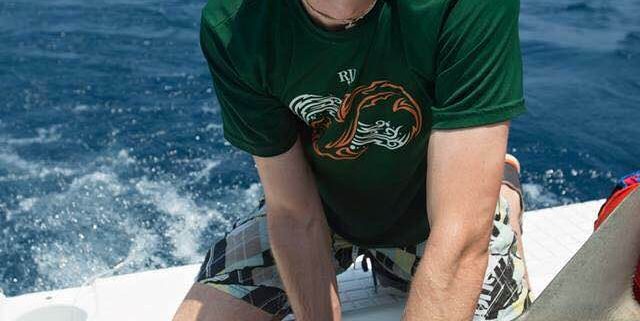
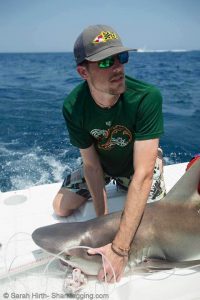
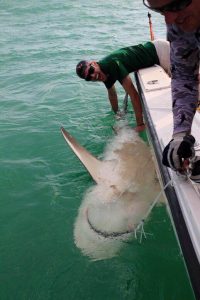
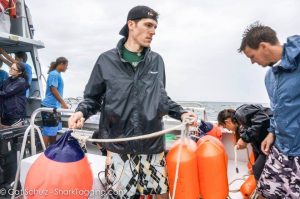
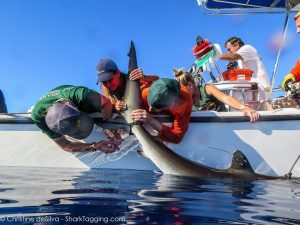


Leave a Reply
Want to join the discussion?Feel free to contribute!